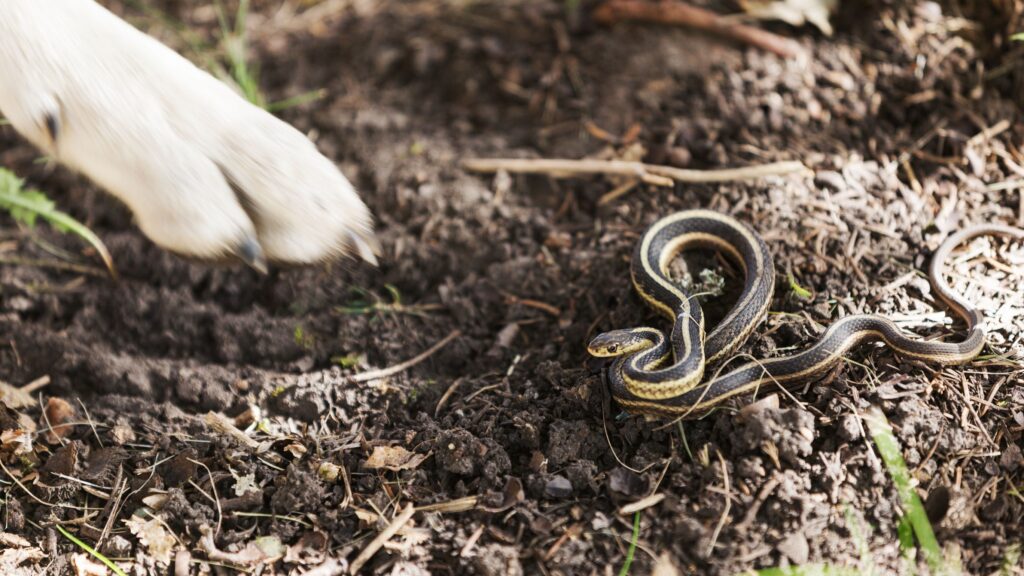When to Call the Vet for a Suspected Snake Bite

Summer means the weather is warm enough for snakes to come out and enjoy the sunshine, which can be a problem for your pet.
Here in Indiana, we have four venomous snake species in the entire state: copperheads, cottonmouths, eastern massasauga rattlesnakes, and timber rattlesnakes. In Fort Wayne, your pet is more likely to run into an eastern massasauga rattlesnake than any of the other three venomous species. Copperheads, cottonmouths, and timber rattlesnakes don’t come into this part of the state.
Thankfully, snake bites are rare, and you probably won’t see venomous snakes at home or out on camping adventures with your pets. But it’s a good idea to be prepared for snake bites in dogs and cats. At Dupont Veterinary Clinic, we’ve got tips for what to do if you suspect that your furry friend has suffered a snakebite.
Signs of Snake Bites in Cats and Dogs
Because our furry family members are, well, furry, it can be hard to see where or if your pet has been bitten by a snake. Knowing the signs of snake bites in pets is key. Here’s what to look for in dogs and cats:
- Crying/whining in pain
- Hiding to attempt to suffer on their own
- Vomiting
- Diarrhea
- Unusual swelling on any part of the body
- Bite marks
- Limping
These signs can develop immediately after a bite. In other cases, they can take up to 30 minutes to develop. If you notice any of these signs, it’s time to take action.
What Do I Do If My Pet Is Bitten By A Snake?
The first thing to do is try to keep yourself and your pet calm.
Remove your pet’s collar. Load her into the car. Get in the driver’s seat. Call your veterinarian or your nearest emergency veterinary hospital. Tell them you suspect your pet has sustained a snake bite and ask if they carry antivenin.
When you find a vet with vials of antivenin available, enter the directions into your phone’s GPS and start driving.
So even if we do end up seeing a copperhead bite in pets up here in Fort Wayne, rattler antivenin can help mitigate the damage done by the venom. Antivenin treatment should begin as soon as possible. That’s why it’s crucial to find a veterinarian that stocks it.
Along with antivenin, your veterinarian will provide your pet with supportive care to help them recover from the bite. This usually includes IV fluids and opioid pain medication.
If you’re unsure whether the snake that bit your pet was venomous, call your veterinarian anyway. Your vet can do bloodwork to find out if your pet was exposed to venom and treat the bite wounds to prevent infection.
Call us today to discuss a snake safety plan or to learn more about how antivenin works.
